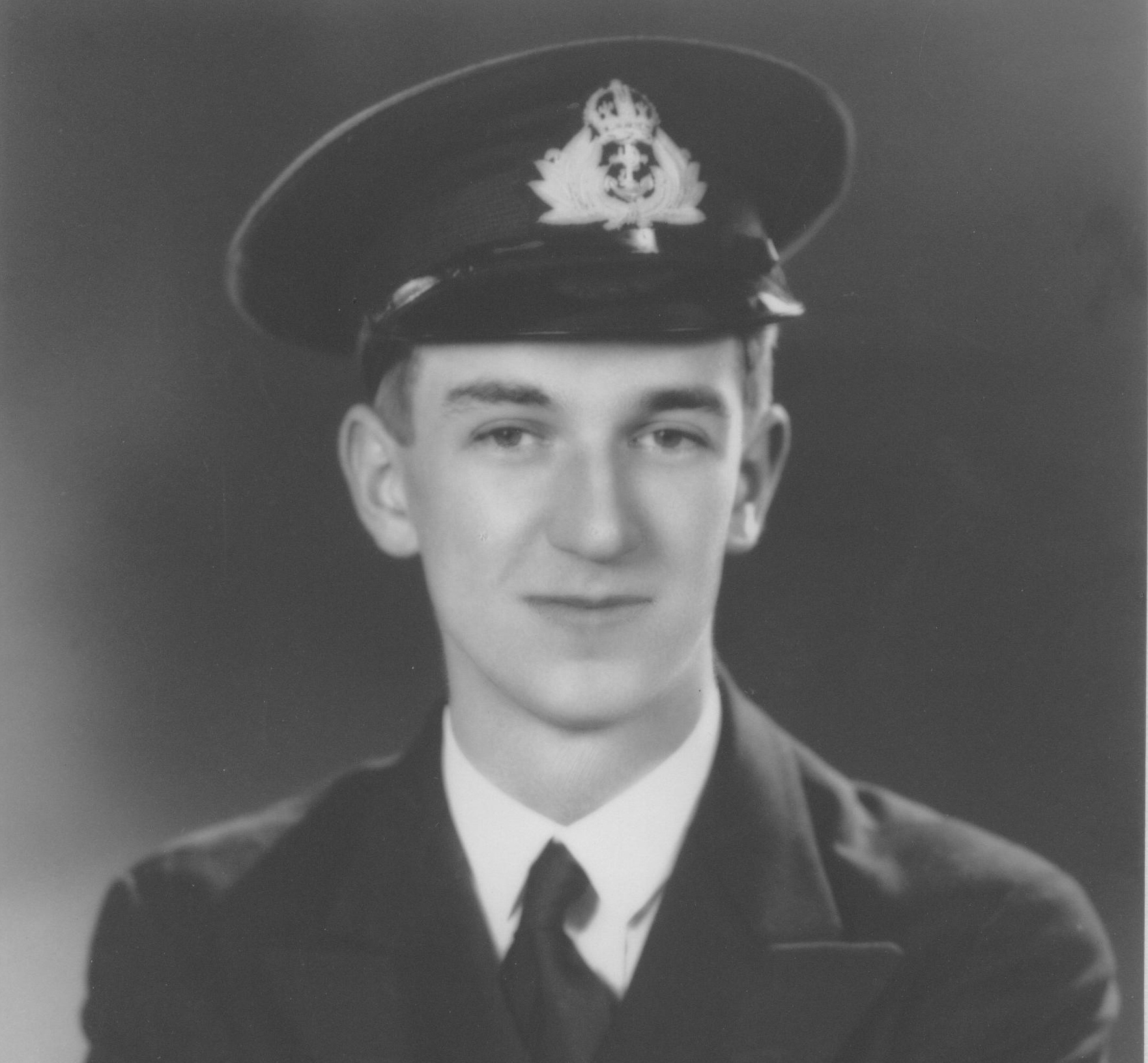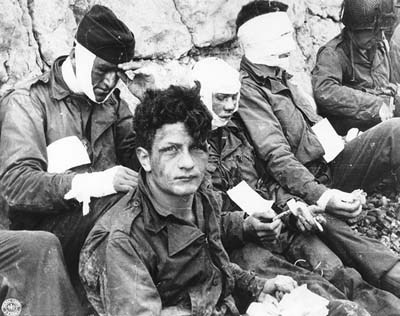65 years ago tonight, my husband, S C Wright, was the radar officer in the code room on the HMS Apollo. He decoded the message that announced the June 6 commencement of Operation Overlord. The Apollo lay in New Haven, a port in Wales. They were told to sail for Portsmouth.
The Apollo, a fast light mine-layer, was chosen as the headquarters ship for General Eisenhower. They left Portsmouth the night of June 6 and reached the Normandy coast early on D-Day +1.
My husband, a 20-year-old naval lieutenant, had grown up in Vancouver, BC. His parents were both British, and from an early age, my husband was navy mad. When war began, he was afraid it would end before he could serve and wanted to join at once, but my mother-in-law insisted he finish his BA. He went to the University of British Columbia and studied day and night and graduated in 1942 with a BS in physics. Canada had agreed to supply the Royal Fleet with radar officers, and my husband was seconded to the Royal Navy, where he served until 1946.

When they reached the Normandy coast, early on June 7, the seas were rough. British warships fired shells overhead at German redoubts; the men on the Apollo could see the shells as they went over. Unfortunately, the Apollo went aground. My husband had the dubious privilege of being on the bridge when one of her screws caught in the ground and the mast began to tilt. He was a few feet from General Eisenhower, who was both dismayed and angry–and was quickly removed to a back-up command ship. The Apollo limped back across the channel at 2 knots to Newcastle. They were lucky not to be sunk–submarines underneath, dogfights above, and no ability to dodge either. The first V-1 rockets were fired that night, and as they slowly rode back to Newcastle, the crew could hear their ominous engine rumblings without knowing what they were.
Like many of the so-called “great generation,” my husband went on with his life–to a distinguished career in high energy physics–without dwelling on his war experiences. About a decade ago, he finally decided he wanted to revisit Normandy in peacetime. We arrived on a day of bright sun, calm seas, no guns and made the solemn pilgrimmage to Utah, Omaha, Point d’Hoc. It was at Point d’Hoc that my husband’s composure broke down. The monument there, to the Rangers who lost their lives scaling those cliffs, is a monument to America–every nationality is represented in those names. And to stand there, knowing that he lived a whole life denied to these youths, shook him, and me. Like most other visitors, we could only weep.
Every French person we encountered, from the youngest teen to the oldest shopkeeper, when they learned about my husband’s service, treated him with extraordinary respect. That someone would come from overseas to save their country is a sacrifice none of them every forgets.

I admire my husband and respect the sacrifice of every person who has ever died or fought. As a Jew, I am grateful a thousand times over for those who saved a tiny remnant of my family from death. I somehow can’t bear the thought of Barack and Sarkozy making publicity out of Normandy, though. What goes through my head tonight is that Wilfred Owen poem:
If you could hear, at every jolt, the blood
Come gargling from the froth-corrupted lungs,
Obscene as cancer, bitter as the cud
Of vile, incurable sores on innocent tongues,
My friend, you would not tell with such high zest
To children ardent for some desperate glory,
The old Lie; Dulce et Decorum est
Pro patria mori.
